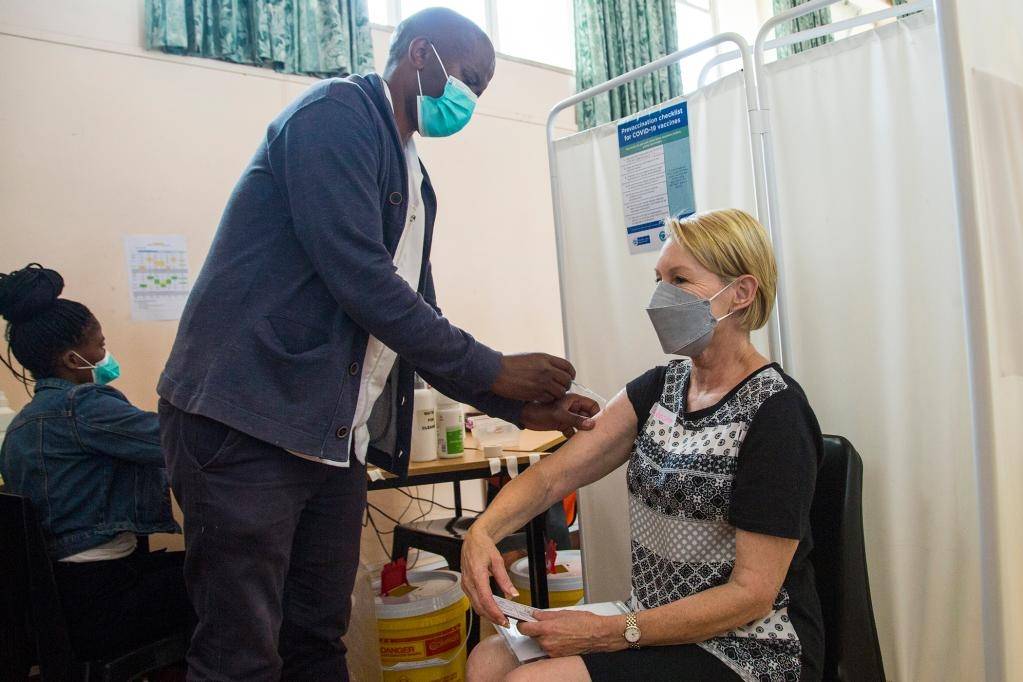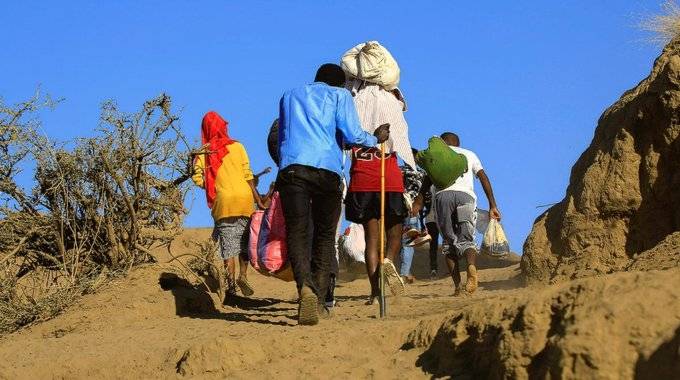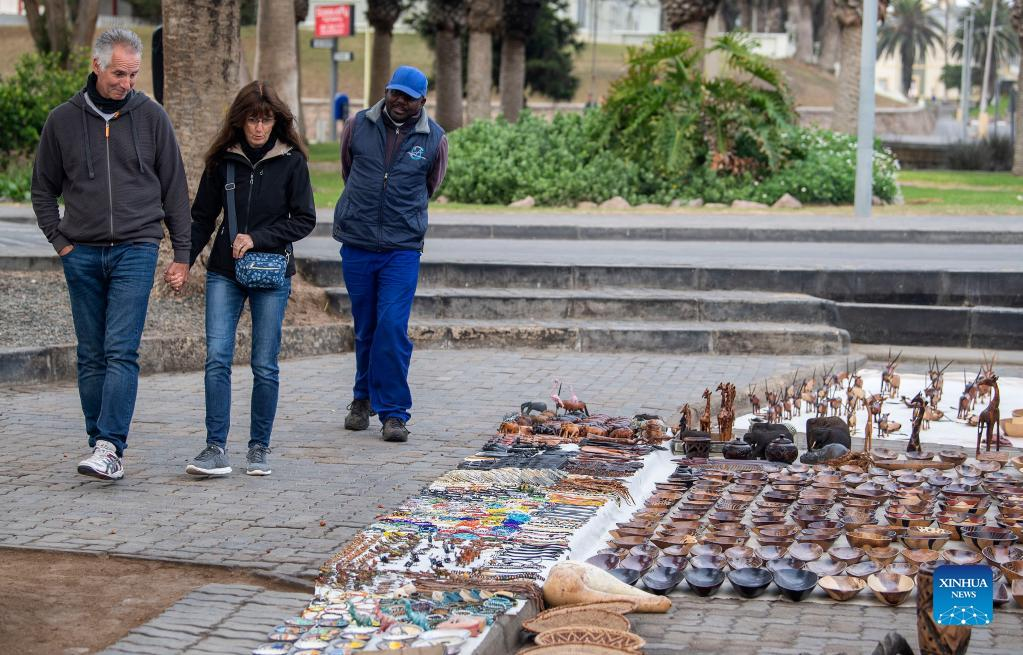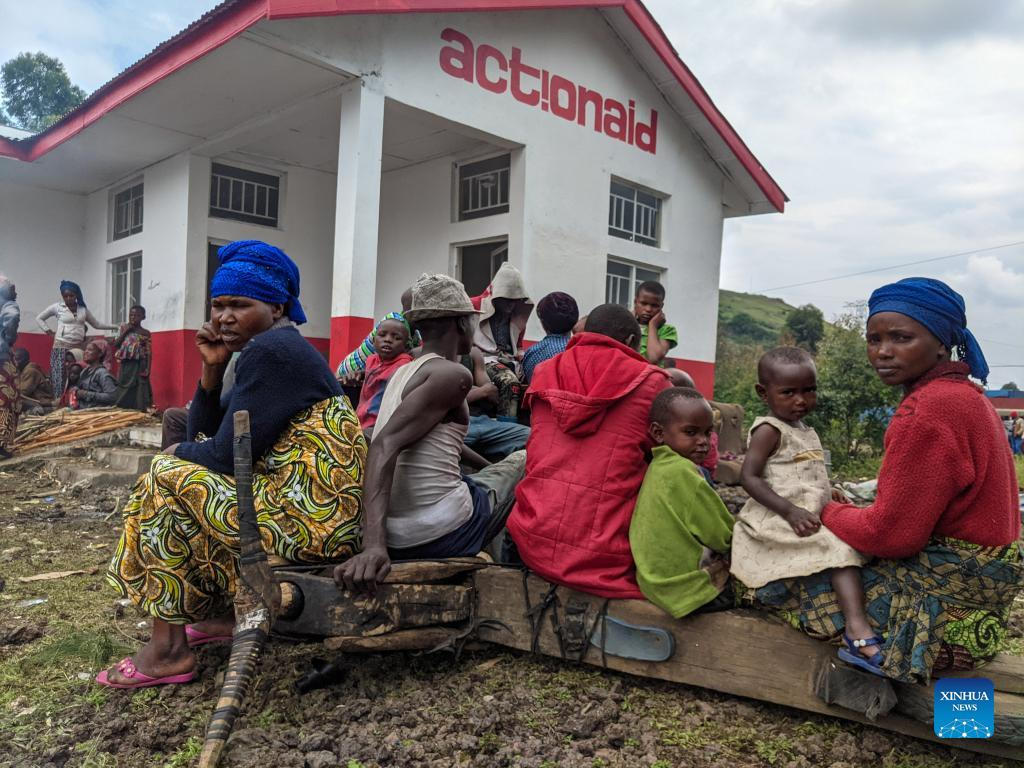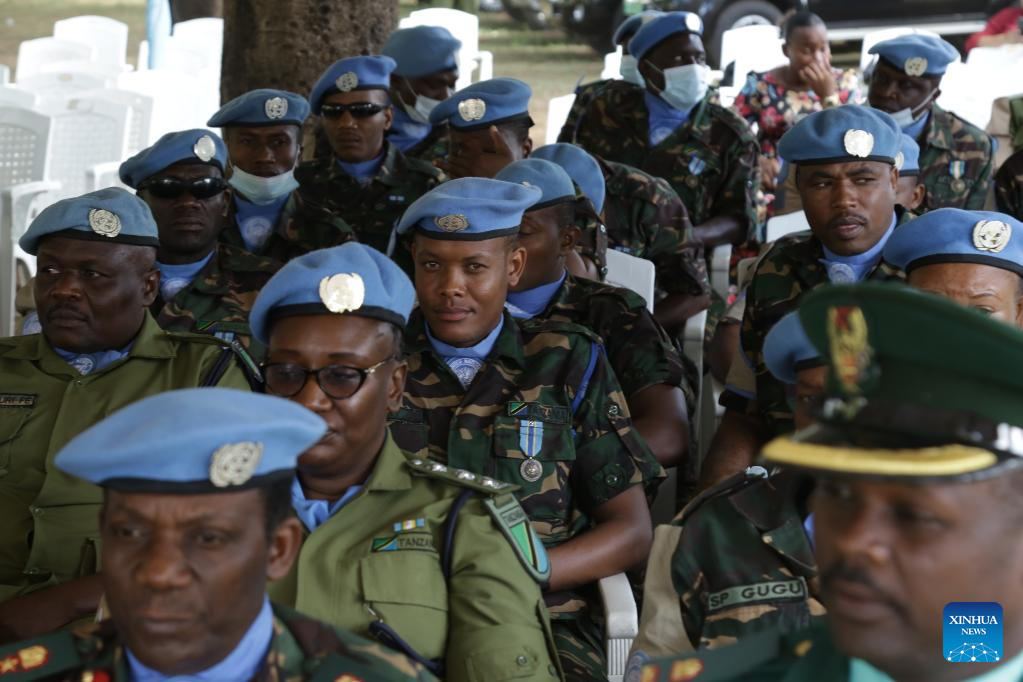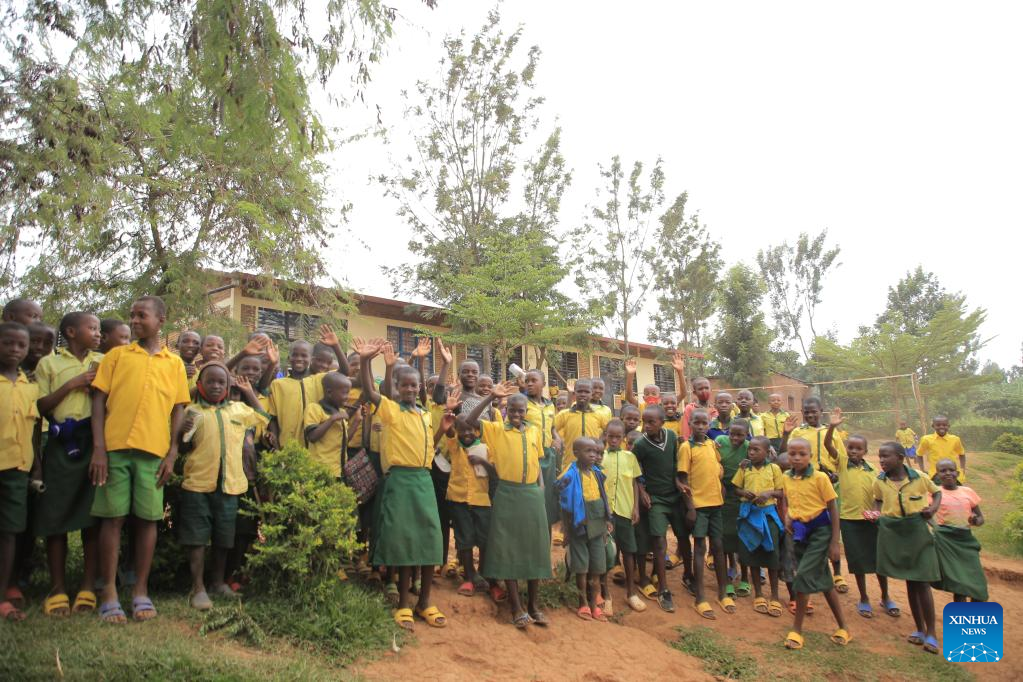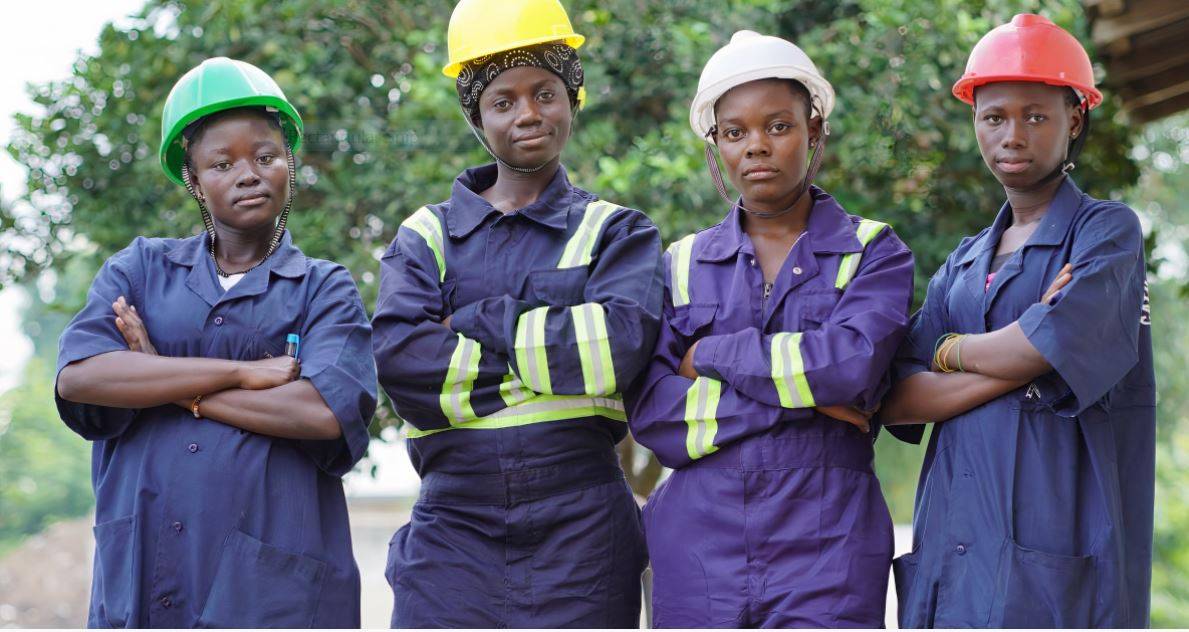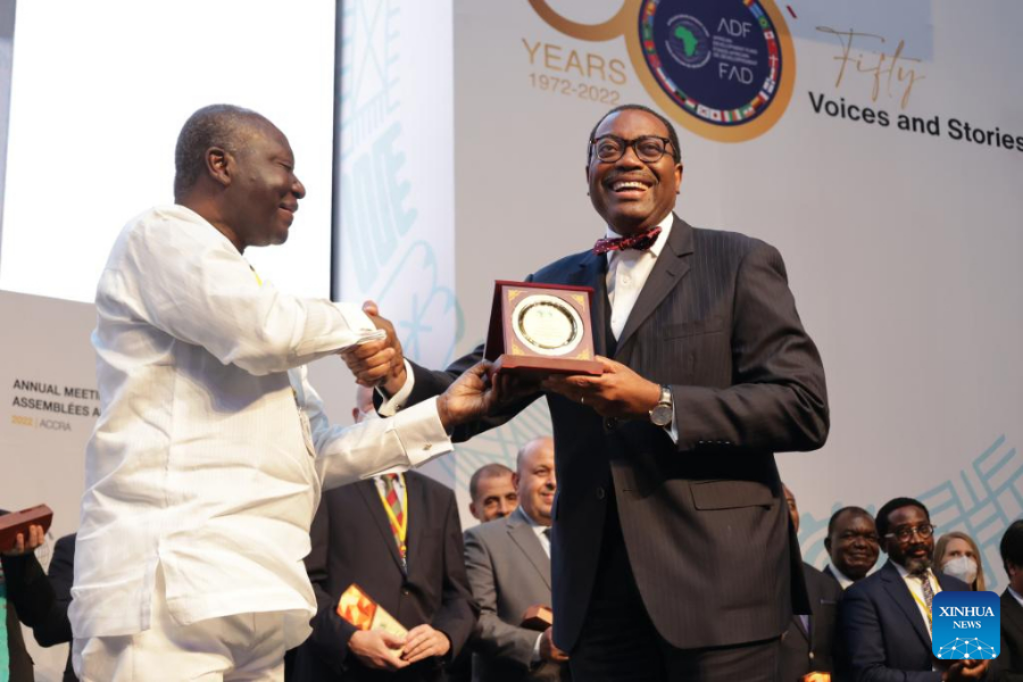The Overseas Chinese Association of Rwanda put beaming smiles on the faces of hundreds of children when they donated assorted gifts to the school for Children’s Day
It is not every day that children get a chance to receive a gift of their choice. This, however, is what happened at Tanda primary and secondary school (GS Tanda) in Rwanda’s Northern Province, when the Chinese community recently visited the school. The Overseas Chinese Association of Rwanda put beaming smiles on the faces of hundreds of children when they donated assorted gifts to the school for Children’s Day which falls on Wednesday this year.
The young children took turns to tell their wishes, under the watchful eye of their headteacher, who looked relaxed and excited to listen to the pupils and encouraged them by applauding their choices. The donation included scholastic materials such as stationery, school bags, shoes, balls, cutlery, sanitary napkins, sanitizer, blankets and food supplies.
As the pupils expressed their wishes, 12-year-old Stella Ishimwe, said her wish was to get a ball. “If I were to choose a gift I would choose a ball,” said the Primary Six pupil who wakes up every day at 6 a.m. to walk to GS Tanda, where she dreams of becoming a medical doctor.
“Why would she need a ball?” some fellow pupils murmured. “Football is my favorite game, which I often play with schoolmates,” she said, dressed in a yellow dress, blue skirt, and plastic sandals locally named boda-boda.
The young girl’s innocent gift wish can be partly explained by the fact that her parents, who are farmers, cannot afford to buy her gifts, only living from hand to mouth.
With the Chinese donation, Ishimwe was able to get a gift of her choice. “A gift makes me feel special,” she said.
The second born in a family of four children, when Ishimwe wakes up she first goes to fetch water from a nearby well before heading to school. “I have three siblings. My father is a subsistence farmer, who grows mostly potatoes and bananas. Without a regular income, paying our school dues is a struggle,” she said.
Despite her poor background, Ishimwe is confident about completing her education. “I feel I will finish schooling despite the challenges. I try to balance all subjects and do the revision of my subject notes at home. I’m excited to be in school,” she said.
Her story is shared by hundreds of her schoolmates. Ishimwe’s classmate Alex Ndahiro, who is also 12 years old, said his favorite gift for Children’s Day is scholastic materials. He said he feels a lot of excitement when Children’s Day approaches.
He makes a similar trek to school as Ishimwe does and has high hopes of completing primary school education this year. “I feel a lot of pride being at school when there are those who are not at school against their wishes,” he said.
Ndahiro is lucky, his father is a medical worker and paying school dues is not a problem.
“My favorite subject is English. I believe that I will finish my studies up to university with determination,” said Nadahiro, the firstborn in a family of two.
Unlike Ishimwe, the first thing Ndahiro does when he wakes up is to revise his subject notes taken the previous day. His dream is to study computer science.
Innocent Gakuba, the school’s headteacher, was transferred to the school in April this year. He said the school makes Children’s Day a memorable event, where pupils craft poems and songs, expressing their wishes from parents and the school.
Parents are invited to such functions and the families of best-performing pupils are given certificates in recognition of their role in the upbringing of their children.
“On Children’s Day we organize writing and drawing competitions in which the winners are awarded prizes, including scholastic materials such as books, bags, pens and school uniforms,” said Gakuba.
Gakuba said gifts donated by the Chinese community would help learners in their academic and co-curricular activities. “Such gifts create friendship between the Chinese and our school and Rwandans in general,” he said.
Rwanda’s education is divided into six years of primary education, three years of lower-secondary education, and three years of advanced level education. Under the first Nine Years Basic Education (9YBE) program, education is offered free of charge in public schools and compulsory for all children.
GS Tanda has three levels, from nursery to ordinary level. It has 1,472 learners across all three levels with a majority of about 1,196 pupils at the primary level.
“There are several categories of parents who educate their children from this school but most are farmers. Some pay school dues in time but others delay and there are also many poor parents in vulnerable categories who don’t have money to pay,” he said.
School dropout is not a big problem for the school. In the village close to Lake Muhazi, a lot of learners drop out of school, according to the headteacher.
ALSO READ: Zambia marks Kaunda Day
“I tried to find out the root cause and realized it was due to domestic wrangles which affect children. You find a child caught in between and not getting support from both parents, leading to school dropout,” he said.
Gakuba, who has 14 years of experience in education, said it’s very frustrating to find a pupil dropping out of school. “As a parent and headteacher, I would wish children to acquire the education I got. I would like to train students to become the country’s future leaders.”
To keep children at school, Gakuba said teachers and parents must show children the importance of education. “I visit homes of pupils who have dropped out of school to engage them and their parents in order to bring them back to school. We do our best to fix the root causes,” he said.

